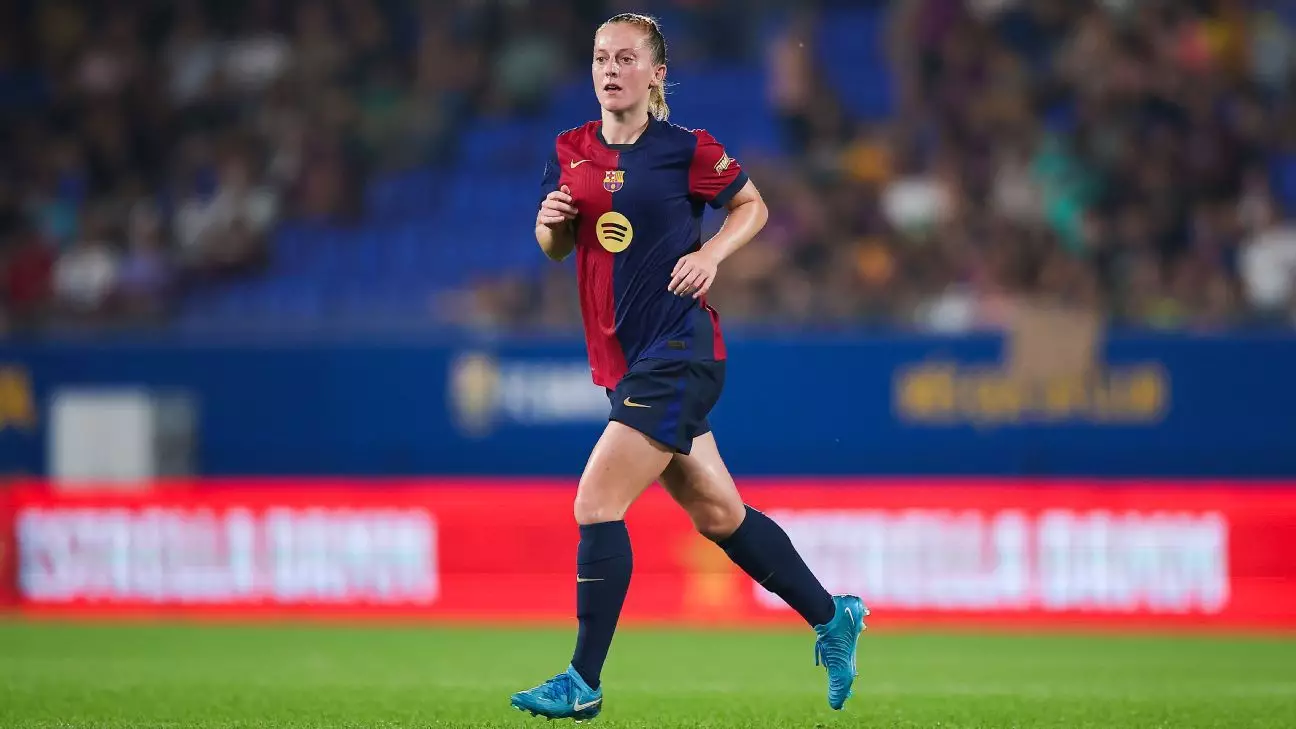In a summer filled with high-profile movements in women’s football, the transfer saga surrounding England international midfielder Keira Walsh has become a focal point. Barcelona’s decision to reject a substantial bid for Walsh shows not only their commitment to their current squad but also reflects a broader narrative in the evolving landscape of women’s sports.
Reports indicate that Arsenal made a noteworthy approach to sign Walsh, with a staggering offer valued at €1.1 million ($1.2 million). Such an amount, if accepted, would have shattered the existing transfer record in women’s football, which currently stands at €800,000 after Racheal Kundananji’s move to Bay FC. This interest from Premier League giants Arsenal—and potentially Chelsea—highlights the increasing competitiveness and financial clout of the Women’s Super League (WSL). However, the rejection of this bid by Barcelona underscored a pivotal moment for both the club and Walsh. It demonstrated Barcelona’s desire not only to retain key talent but also to maintain their status in global women’s football.
In an atmosphere where women’s football is rapidly gaining recognition, record-breaking moves are becoming the norm, illustrating how far the sport has come in recent years. Barcelona’s refusal to let Walsh leave, despite her impending contract expiration at the season’s end, raises questions regarding the strategic planning within clubs and the willingness to invest in top-tier players even amid complications like expiring contracts.
Barcelona’s Commitment to Walsh
Barcelona’s management has made it clear that they have “no intention” of letting Walsh depart and have firmly established her €3 million release clause as a precedent that interested clubs must respect. This decision illustrates a broader trend within the sport: clubs are beginning to recognize the importance of retention as well as recruitment. By holding onto Walsh, who played a significant role in their past successes, Barcelona aims to preserve the winning culture that has defined their recent history.
Despite the attractive prospects that a return to England might present for Walsh, it seems Barcelona is equally committed to convincing her to extend her stay. Demonstrating a confidence that not only comes from their recent successes but from Walsh’s integral role in their team, Barcelona appears to have aligned its objectives with its players’ desires—striking a balance that could ensure mutual growth. The assertion made by coach Pere Romeu that Walsh is vital to their style of play reaffirms his faith in the player and suggests a long-term vision for the club’s tactical identity.
Even with Walsh’s future uncertain, her recent performances suggest that she remains wholly invested in the team. After starting in their 3-1 victory against Real Sociedad, it’s clear that this commitment translates onto the pitch. Romeu’s comments regarding Walsh’s professionalism and her overall impact indicate that the coaching staff recognizes her contributions extend beyond mere statistics; they see her as a crucial player in fostering team harmony.
As the club navigates this narrative, another player, María Pérez, bid farewell to Barcelona for the London City Lionesses. While this departure signals a shift, it does not detract from Barcelona’s overarching strategy. The increase in competitive transfers, seen with the Lionesses’ acquisitions, underscores the ambition of clubs that remain keen on improving their squads and enhances the competitive landscape of women’s football.
The standoff surrounding Walsh’s potential transfer encapsulates the complexity of women’s football logistics. As clubs seek to build momentum in a sport that continues to grow exponentially, these decisions have far-reaching implications. The strong rejection of a record-breaking bid might dissuade clubs from future pursuits, encouraging them instead to focus on nurturing homegrown talent, as evidenced by Walsh’s recruitment from Manchester City in 2022.
The situation surrounding Keira Walsh not only sheds light on the internal dynamics of FC Barcelona but also highlights the potential volatility within women’s football. As clubs maneuver through the intricacies of the transfer market and player contracts, the stakes are higher than ever. In the end, both the clubs and players must consider their long-term aspirations amid the immediate pressures of competition and investment in an ever-evolving sport.


Leave a Reply